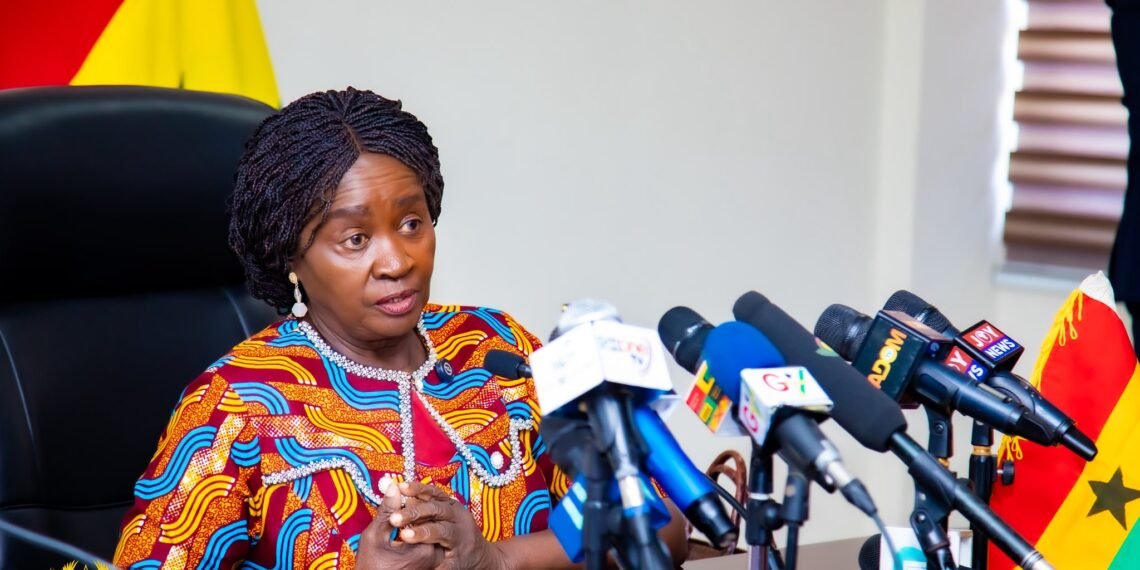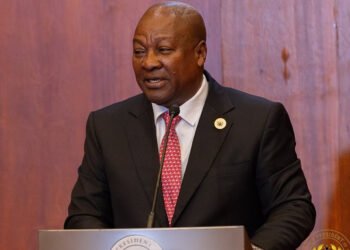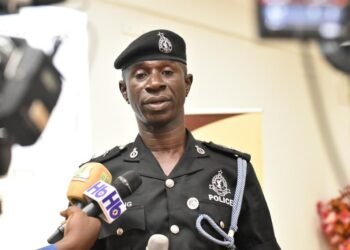Ghana’s Vice President, Professor Naana Jane Opoku Agyemang, has reaffirmed government’s commitment to inclusive, accessible, and quality education, stressing that reforms in the sector must focus not only on expanding numbers but also on diversifying opportunities, sustaining funding, and ensuring discipline in schools.
She made the remarks during a courtesy call at the Ministry of Education, where she reflected on past interventions and outlined the government’s vision for strengthening the education system.
Addressing officials and agency representatives, the Vice President acknowledged the wide scope of the education sector, which she said now consists of over thirty agencies. She noted that at certain points in the country’s history, education consumed as much as 40 percent of the national budget, yet funding challenges still persisted because of the sector’s growing demands.
“We’ve done 40% of the national budget before, and yet, it’s still not enough, and with good reason,” she explained, underscoring the scale of investments required to develop a human resource base capable of driving sustainable economic growth.
Reflecting on her previous experience as Minister of Education, Professor Opoku Agyemang recalled the interventions that addressed widespread reliance on remedial classes in core subjects. She said research was conducted in collaboration with the West African Examinations Council (WAEC) to understand why students struggled in certain subjects, and those findings informed targeted solutions.
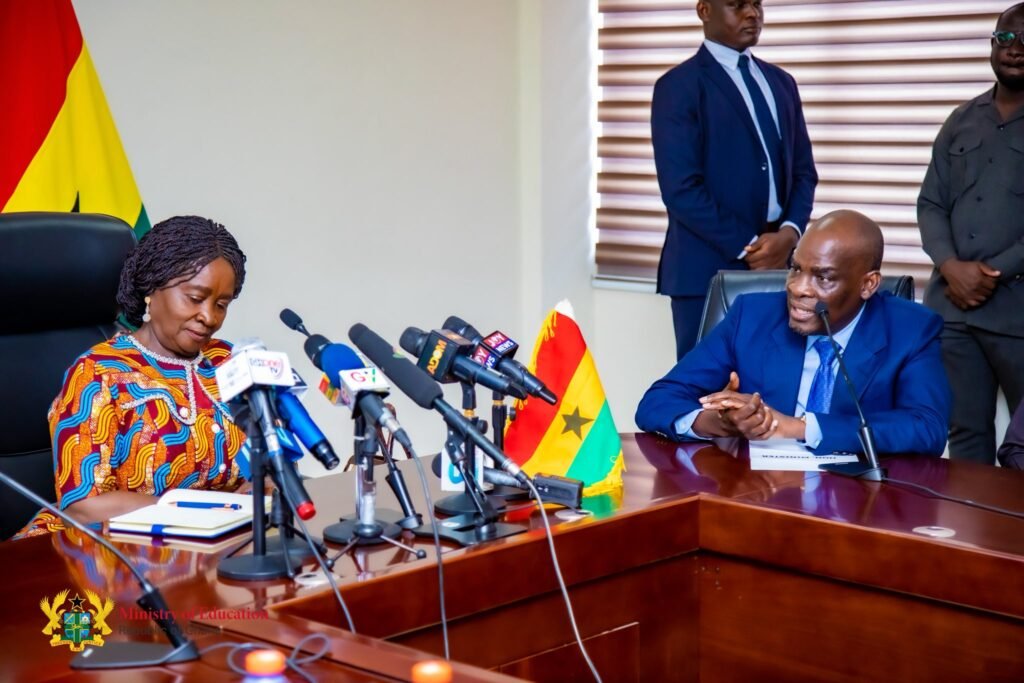
“WAEC was very, very supportive, giving us all the data from the 60s. We worked our way out to see what really is the issue, why our children are having difficulty with these subjects, and what we could do”.
Ghana’s Vice President, Professor Naana Jane Opoku Agyemang
Expanding Tertiary Education
The Vice President highlighted the government’s commitment to expanding tertiary education while ensuring diversity in the higher education landscape. She cited the establishment of the Eastern Region University in Somanya and the upgrading of polytechnics into technical universities as examples of deliberate policies to give students more opportunities for advancement.
She dismissed claims that polytechnics had been abandoned, emphasizing that the reforms were rooted in fairness and equity.
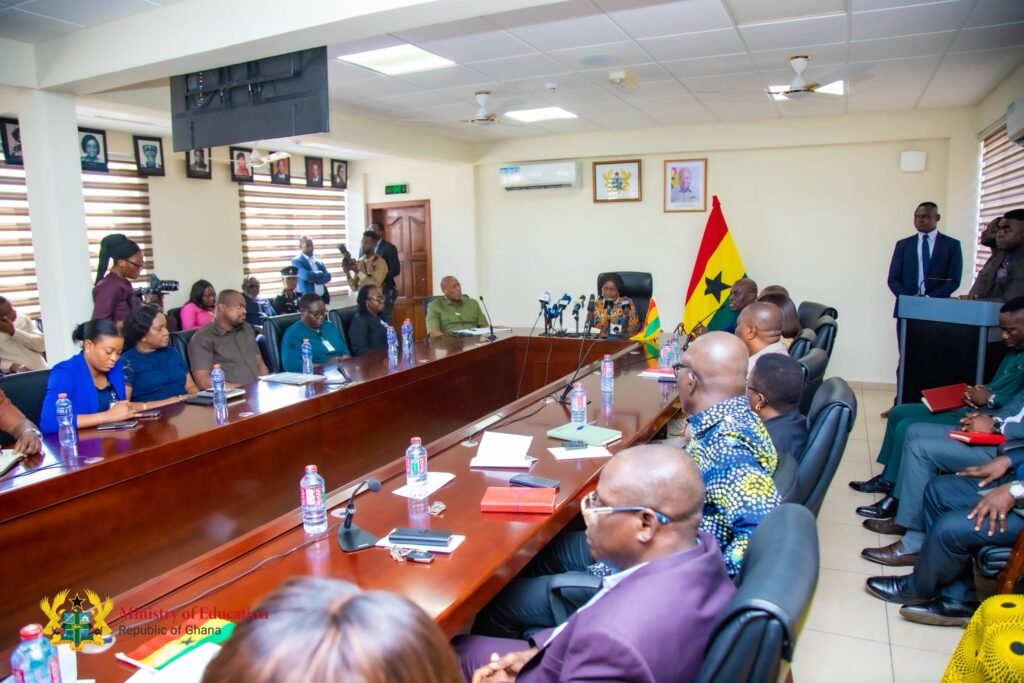
“We didn’t think it was right to tell anyone that you can study in a technical subject, and the highest degree you can get is an HND. If the person has the talent and potential to go further, why can’t the person go? So we created the space for people to fly as high as they can go”.
Ghana’s Vice President, Professor Naana Jane Opoku Agyemang
Instilling Discipline
On the issue of discipline in schools, Professor Opoku Agyemang urged parents, teachers, and communities to share responsibility for shaping the conduct of young people. She cautioned against violence and disruptive behavior in schools, emphasizing that classrooms should be spaces for dialogue and learning.
“A school is a place where you can share ideas, agree, and disagree. It’s not about force, yelling, or brawn,” she said. She added that teachers must be supported in maintaining discipline constructively, while society as a whole must reinforce positive values.
The Vice President also spoke about student financing initiatives, noting the government’s introduction of the No-Fees Stress policy and the Student Loan Plus policy. She explained that the “Plus” was designed to support students who had gained admission but lacked the means to register and therefore could not access regular student loans.
“We created the Plus to ensure that if you had your letter of admission, we would support you to register,” she said. She acknowledged the need for proper means testing in future to ensure that students with greater financial needs receive adequate support.
Professor Opoku Agyemang emphasized the government’s commitment to building a stronger funding base for education. She said education financing would always be limited if the economy itself did not expand, stressing the need for sustainable growth.
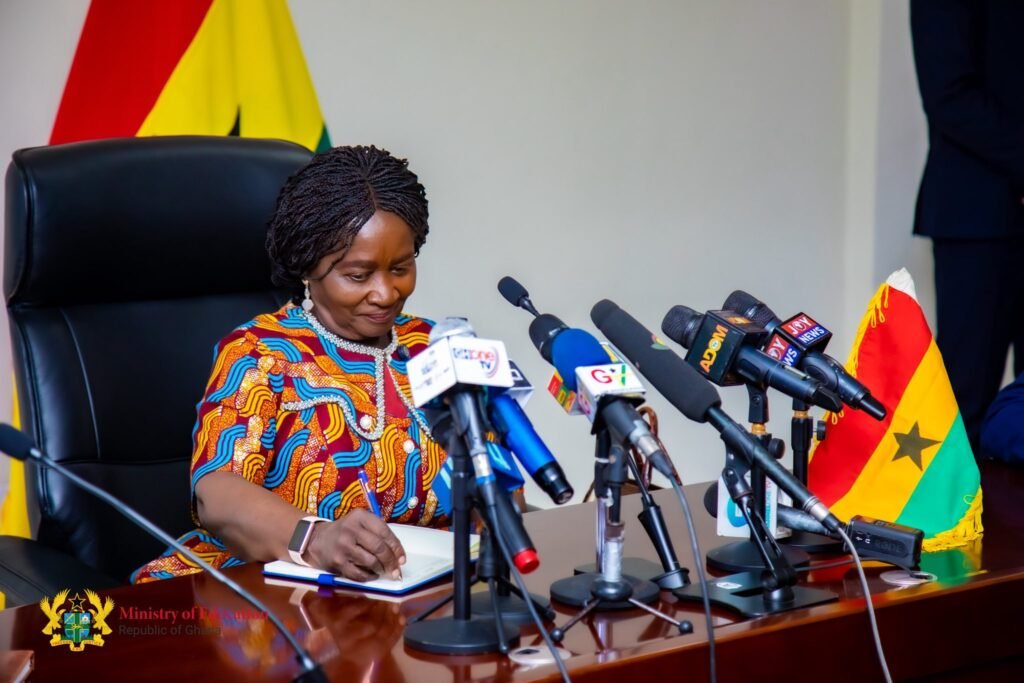
“Whether we are setting up a fund or not, it’s the same fund, isn’t it, from which we are going to create the fund? The pie should be so big that even if you have 10 percent, it’s okay. So as a country, as an economy, we have a lot of work to do”.
Ghana’s Vice President, Professor Naana Jane Opoku Agyemang
Calls for Collaboration
Turning to administrative issues, she called for greater collaboration among the agencies under the Ministry of Education. According to her, breaking down silos and sharing expertise was critical to achieving better results.
“There’s so much talent in almost every agency that we can learn from, we can share. And I want to urge all of us that we learn from each other, we share our expertise. That means the results are positive for all of us”.
Ghana’s Vice President, Professor Naana Jane Opoku Agyemang
The Vice President also touched on the challenges of school placements, acknowledging the pressures faced by education officials during the process. She urged patience and polite engagement with stakeholders, while pointing to government’s efforts to expand infrastructure, particularly through the completion of the abandoned e-block schools, as part of long-term solutions to ease the pressure.
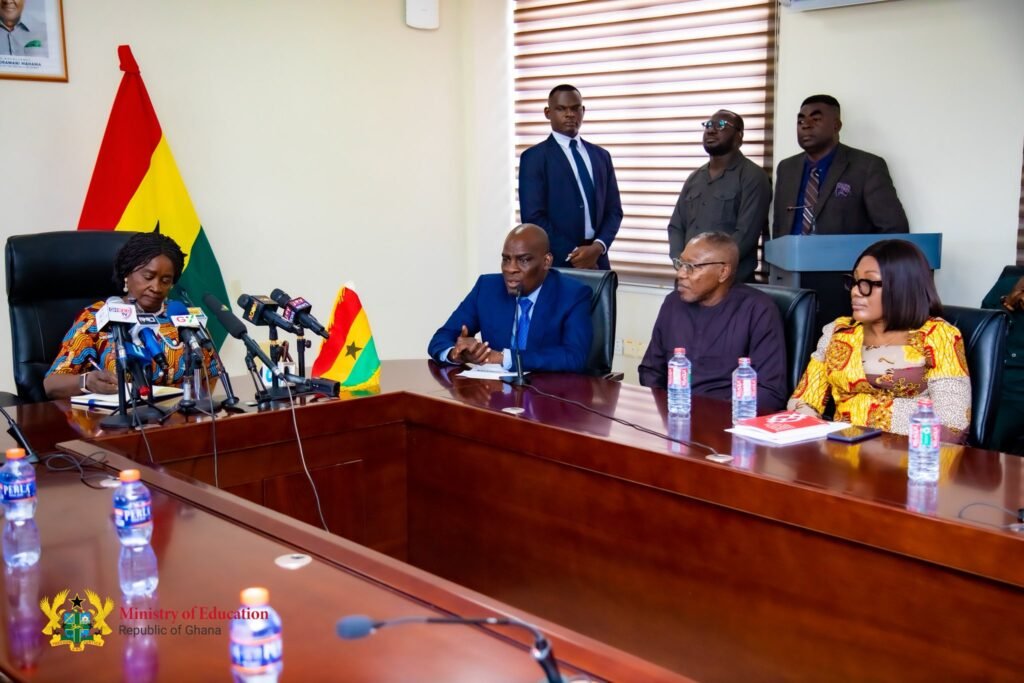
In her closing remarks, Professor Opoku Agyemang stressed that education must remain a national priority not only for its role in individual transformation but also for its impact on Ghana’s economic development and sustainability.
“We have a lot of work to do. But I have no doubt that all of us will put our hands to the wheel and ensure that we are building a very stable country for all of us. And that is where the sustainability hopefully should be”.
Ghana’s Vice President, Professor Naana Jane Opoku Agyemang
Her comments reaffirm the administration’s broader vision of inclusive development, where education serves as the foundation for social mobility, national cohesion, and long-term growth.
By strengthening financing, expanding access, and promoting discipline, the government aims to secure an education system that responds to the needs of learners while preparing Ghana to meet future challenges.

